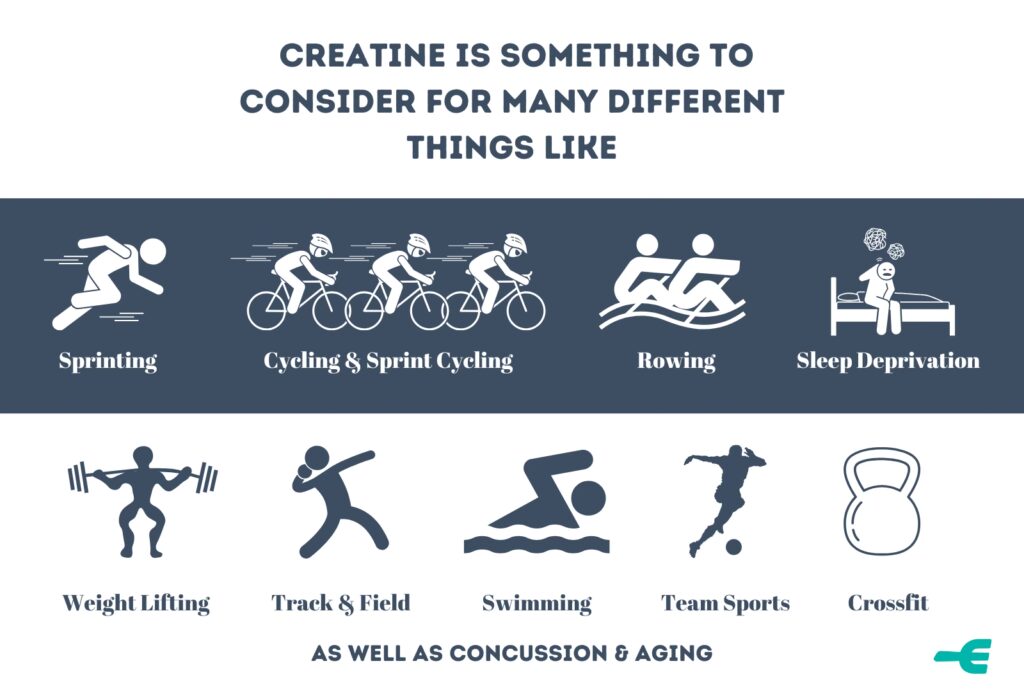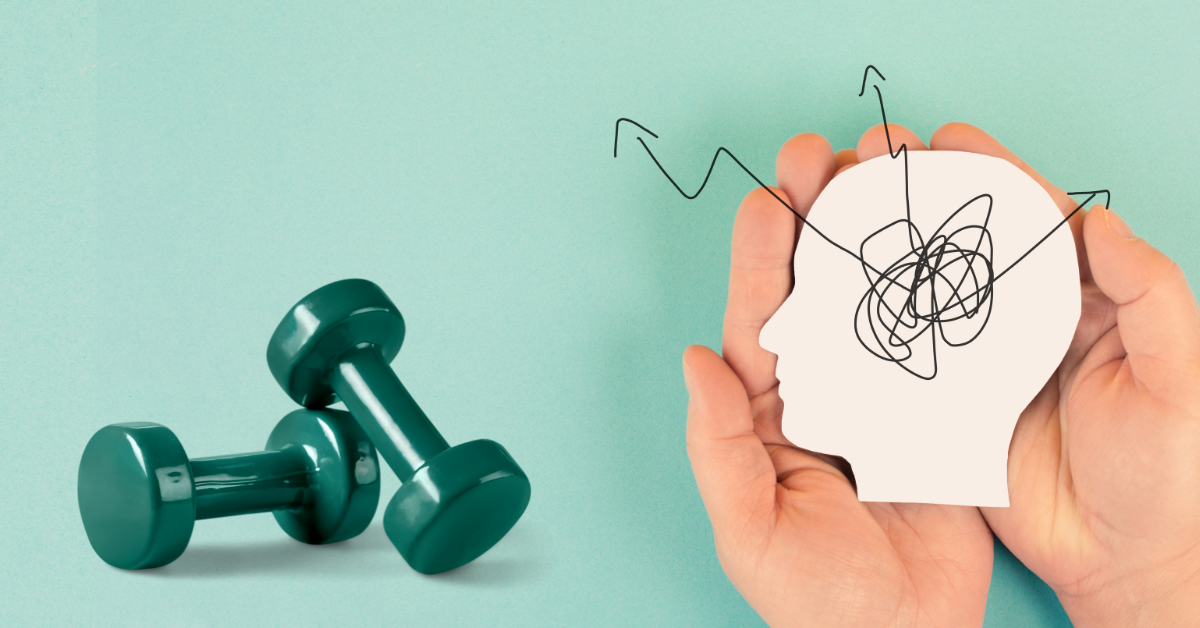Creatine in Practice: Supporting Focus and Recovery
Creatine has long been celebrated for its role in building strength and power. But the benefits don’t stop there. Evidence also supports its use for strength and speed gains, recovery, and even in post-concussion protocols – making it one of the most versatile supplements available. And its story has now moved well beyond the gym: creatine can sharpen thinking when sleep is limited and aid recovery by reducing inflammation and muscle damage.
This opens up a crucial conversation for us as practitioners. Creatine is no longer just a “gym supplement” – it’s a powerful tool for the whole body, and translating that science is where our expert guidance makes all the difference.
Brain Under Pressure: Creatine, Cognition and Sleep Deprivation
We’ve all felt it – the foggy thinking, forgetfulness, and fatigue that follows a night of poor sleep. Whether it’s an athlete traveling across time zones, a new parent in survival mode, or a professional grinding through deadlines, cognitive performance plummets when sleep is compromised.
Here’s where creatine makes a difference. The brain is a high-energy organ, powered by a constant supply of ATP. When stress or sleep loss drains this fuel, performance falters. Supplementing with creatine boosts the brain’s phosphocreatine stores, expanding its energy buffer. The result? Improved reaction time, stronger working memory, and better resilience under mental strain.
In recent studies, Dolan et al. (2021) highlighted creatine’s ability to support brain energy metabolism and provide neuroprotection during periods of sleep deprivation, helping to preserve cognitive performance when it’s most under pressure. Additionally, Xu and colleagues (2024) showed in a systematic review and meta-analysis that creatine supplementation consistently improves memory, attention time, and processing speed – reinforcing its role as more than just a muscle-focused supplement.

The Practitioners Playbook: From Science to Daily Habit
Knowing the science is the first step, applying it is where our value as practitioners truly lies. For creatine, especially for cognitive support, success isn’t about the dosage; it’s about helping clients build a consistent habit that fits seamlessly into their life.
Key considerations for implementation:
- Tailor the dose: the standard maintenance dose of 3-5g per day is typically sufficient for most benefits. For some of the cognitive-specific outcomes consider a short loading phase ( e.g., 20g/day) for 5-7 days split into smaller doses across the day to aid absorption and minimise gut upset.
- Support off-season use: encourage athletes to continue creatine during the off-season to help maintain muscle mass and support recovery.
- Anchor the habit: encourage clients to link creatine to an existing routine – e.g., mixing it into morning coffee, adding it to a smoothie, or pairing it with their multivitamin.
- Pair with carbs (when possible): taking creatine with a carbohydrate-containing meal can enhance cellular uptake via insulin response
- Choosing the right product: stick with creatine monohydrate and recommend batch-tested brands to ensure safety and quality.
- Manage expectations on loading: educate clients that a short-term increase in body-weight during loading is normal, temporary and reflects water being drawn into the muscles.
Your value is in the translation
The evidence for creatine is clear and growing. But the real difference comes from how it’s applied. Your role as a practitioner is not to overwhelm clients with citations, but to make the science actionable, relevant, and personal. That means:
- Meeting clients where they are
- Making the process realistic and enjoyable
- Helping them build daily habits that last
Creatine isn’t complicated. But translating the science into something your clients understand, trust and can stick with – that is where you make your greatest impact.
Want to go deeper?
To explore the evidence and practical applications of creatine further, check out our free Q&A with Alicia on YouTube: Creatine Explained: Evidence, Myths & How to Use It.
You’ll learn:
- What creatine actually does in the body
- The latest research on cognition, recovery, and performance
- Common myths and misconceptions
- How to use it safely and effectively with clients
References
Dolan E, Gualano B, Rawson ES. Beyond muscle: the effects of creatine supplementation on brain creatine, cognitive processing, and traumatic brain injury. Eur J Sport Sci. 2019 Feb;19(1):1-14. doi: 10.1080/17461391.2018.1500644. Epub 2018 Aug 7. PMID: 30086660.
Xu C, Bi S, Zhang W, Luo L. The effects of creatine supplementation on cognitive function in adults: a systematic review and meta-analysis. Front Nutr. 2024 Jul 12;11:1424972. doi: 10.3389/fnut.2024.1424972. Erratum in: Front Nutr. 2025 Feb 17;12:1570800. doi: 10.3389/fnut.2025.1570800. PMID: 39070254; PMCID: PMC11275561.



